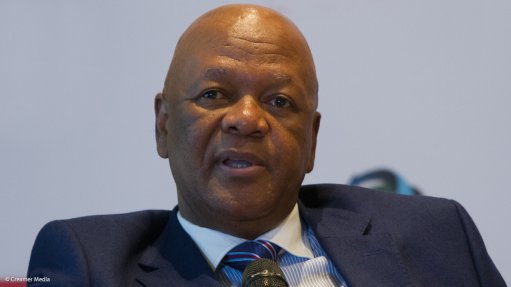
Minister in the Presidency Jeff Radebe
Photo by: Duane Daws
Government departments that do not embrace information and communication technology (ICT) applications in the delivery of public services will fail in their mandates, says Minister in the Presidency for Planning, Performance, Monitoring, Evaluation and Administration Jeff Radebe.
Addressing delegates on the first day of the inaugural Gauteng e-governance and ICT summit, in Midrand, on Monday, he explained that the adoption of ICT was increasingly becoming critical to the attainment of strategies and goals as the world transitioned to digital platforms.
Globally, governments were challenged to review how their processes were structured and were increasingly leveraging ICT to simplify and improve service delivery, provide access to more citizens, increase efficiencies and drive down costs.
“The unprecedented rate of technological and scientific innovation through which we are living imposes serious pressures on governments and governance systems to continuously transform and modernise themselves,” Gauteng Premier David Makhura added.
He noted that the “old”, more restricted ways of government interactions with citizens, which were often restricted to time, space and region, were now inadequate and “completely unnecessary”.
“Public services and public engagements have to respond to the information technology revolution wherein millions of people can access services and transact with governments anytime, anywhere, without coming face to face with an arrogant or incompetent civil servant or corrupt public official,” he explained.
In line with this, South Africa’s economic powerhouse, Gauteng, was deploying a five-year e-Government strategy to develop a quality, high-speed and efficient e-government platform, with the aim of catalysing and setting the example for the nation’s other provinces to follow.
Gauteng was moving to ensure streamlined, integrated and seamless operations and government processes to enhance and increase access to efficient, effective basic services for citizens.
“We have already adopted a five-year Gauteng City Region- (GCR-) wide e-Government strategy,” Makhura pointed out.
The strategy aimed to build enabling broadband infrastructure and a platform for a connected government and the delivery of e-government services; coordinate, standardise, regulate and prioritise the implementation of e-government initiatives; and promote the use of e-government services across the board – by government, citizens and the private sector, while stimulating the ICT economy by encouraging public–private partnerships for the development and roll-out of e-government services.